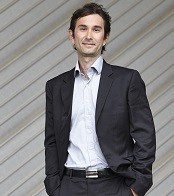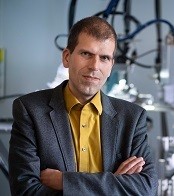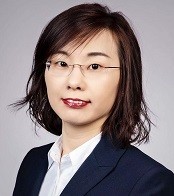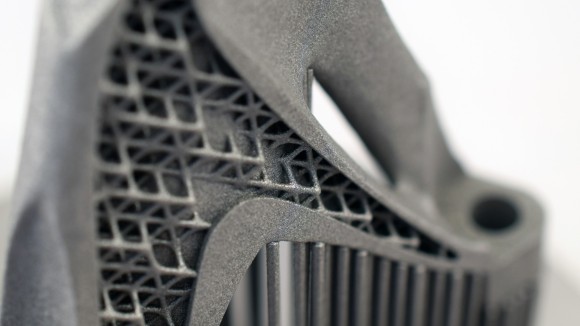 Sara Bagherifard is an Assistant Professor in the Mechanical Engineering department at Politecnico di Milano. Her major research interests are surface treatments, additive manufacturing, and structural integrity of metallic components. Dr Bagherifard has been an Editorial Board Member for Scientific Reports since 2022.
Sara Bagherifard is an Assistant Professor in the Mechanical Engineering department at Politecnico di Milano. Her major research interests are surface treatments, additive manufacturing, and structural integrity of metallic components. Dr Bagherifard has been an Editorial Board Member for Scientific Reports since 2022.
 Giovanni Bruno is a Professor with the Institute of Physics and Astronomy at the University of Potsdam. He also works as a Group Leader for the Federal Institute for Material Testing and Research in Germany. His scientific interests focus on the quantitative extraction of materials properties through X-ray imaging and diffraction techniques. Dr Bruno has been an Editorial Board Member for Scientific Reports since 2022.
Giovanni Bruno is a Professor with the Institute of Physics and Astronomy at the University of Potsdam. He also works as a Group Leader for the Federal Institute for Material Testing and Research in Germany. His scientific interests focus on the quantitative extraction of materials properties through X-ray imaging and diffraction techniques. Dr Bruno has been an Editorial Board Member for Scientific Reports since 2022.
 Andrey Molotnikov is an Associate Professor in Additive Manufacturing at RMIT University, Australia. He also holds the role of Deputy Director of RMIT Centre for Additive Manufacturing and Research Director of RMIT Europe. A/Prof Molotnikov’s main research interests include additive manufacturing, architectured materials and computational materials science. He is leading several projects focusing on alloy design for additive manufacturing, multi-material processing and quality control of laser powder bed fusion process. Dr Molotkinov has been an Editorial Board Member for Scientific Reports since 2022.
Andrey Molotnikov is an Associate Professor in Additive Manufacturing at RMIT University, Australia. He also holds the role of Deputy Director of RMIT Centre for Additive Manufacturing and Research Director of RMIT Europe. A/Prof Molotnikov’s main research interests include additive manufacturing, architectured materials and computational materials science. He is leading several projects focusing on alloy design for additive manufacturing, multi-material processing and quality control of laser powder bed fusion process. Dr Molotkinov has been an Editorial Board Member for Scientific Reports since 2022.
 Thomas Niendorf is Full Professor at the Institute of Materials Engineering at University of Kassel, Germany. Prof. Niendorf’s research interests are in the interrelationships of process, microstructure, mechanical properties and reliability of metallic materials, realization of microstructurally graded samples for improved functionality as well as thorough characterization of integrity and reliability of AM components. Materials in focus are steels, aluminum alloys, high-temperature materials, shape memory alloys as well as hybrid materials. Prof Niendorf has been an Editorial Board Member for Scientific Reports since 2022.
Thomas Niendorf is Full Professor at the Institute of Materials Engineering at University of Kassel, Germany. Prof. Niendorf’s research interests are in the interrelationships of process, microstructure, mechanical properties and reliability of metallic materials, realization of microstructurally graded samples for improved functionality as well as thorough characterization of integrity and reliability of AM components. Materials in focus are steels, aluminum alloys, high-temperature materials, shape memory alloys as well as hybrid materials. Prof Niendorf has been an Editorial Board Member for Scientific Reports since 2022.
 Xueju Wang is an Assistant Professor with the Institute of Materials Science at the University of Connecticut. Her research interests include mechanics, active materials, and functional structures for applications ranging from morphing devices to flexible electronics. Dr Wang has been an Editorial Board Member for Scientific Reports since 2022.
Xueju Wang is an Assistant Professor with the Institute of Materials Science at the University of Connecticut. Her research interests include mechanics, active materials, and functional structures for applications ranging from morphing devices to flexible electronics. Dr Wang has been an Editorial Board Member for Scientific Reports since 2022.

